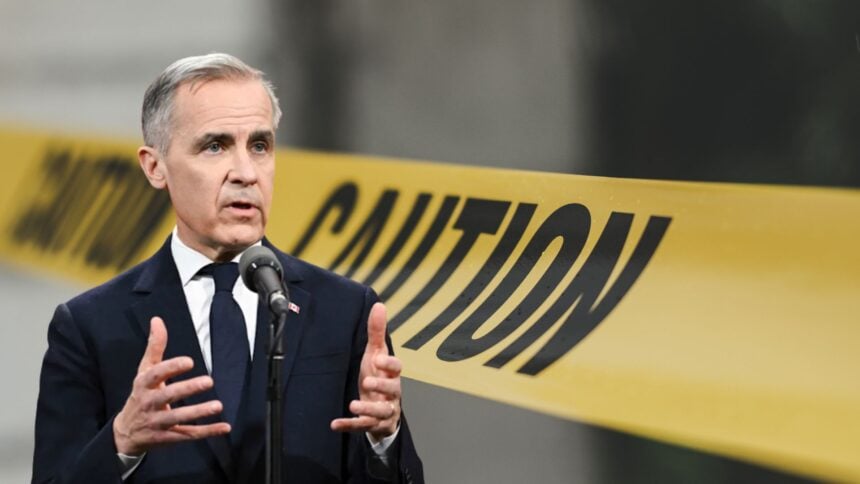Prime Minister Mark Carney set out a crime package that would tighten bail, lengthen sentences for serial offenders, and add 1,000 Royal Canadian Mounted Police personnel, framing the plan as a prerequisite for economic stability and safer streets.
In a news release from the Prime Minister’s office, the government said it will move next week to table amendments to the Criminal Code that introduce reverse-onus bail for major crimes, allow consecutive sentencing so multiple convictions yield longer time in custody, impose tougher penalties on organized retail theft, and restrict conditional sentences for several sexual offenses.
The measures arrive as provinces press Ottawa for stiffer consequences for repeat violent offenders and rising auto thefts strain police resources.
The hiring pledge is anchored by C$1.8 billion over four years in the fall budget to lift federal policing capacity, including 150 RCMP personnel dedicated to financial crimes and an increase in the RCMP cadet recruitment allowance to C$1,000 a week.
The government said the added financial-crime capacity is meant to hit money-laundering networks, online fraud, and the recovery of illicit assets, areas that have drawn scrutiny from markets and cross-border partners given the impact on investment flows and consumer confidence.
Legislative language was not released, and the government did not provide fiscal year run-rates beyond the four-year total.
The announcement said the reforms target violent auto theft, break-and-enter, human trafficking, violent assault, and sexual assault.
Attorneys-general and public safety ministers meeting in Kananaskis will be briefed on the changes, according to the statement, as the federal government seeks provincial buy-in for administration of justice and bail.
Budget 2025 is scheduled for Nov. 4. Finance Minister François-Philippe Champagne has already signaled a permanent shift to a fall budget cycle, which the government argues will give investors and builders greater predictability.
The new timing also places the crime package within a broader fiscal reset that the prime minister has cast as building a more productive economy while keeping communities secure.
Carney’s crime push tracks with a series of policy moves that aim to pair near-term cost-of-living relief with longer-horizon industrial investment.
Earlier this fall, his government paused an electric-vehicle sales mandate while it reviews trade and jobs impacts, a shift captured in our coverage, Carney hits pause on EV mandate.
The crime bill also sits alongside a pipeline of construction-heavy priorities identified by the new Major Projects Office, outlined in Carney’s name first projects and examined in what Carney’s project picks reveal.
While those files focus on growth, Thursday’s announcement leans on deterrence and enforcement as a confidence measure for households and retailers after a run of high-profile thefts.
The government says the legislation will flip the burden of proof on bail for major crimes, meaning accused persons in specified categories would have to show why they should be released.
It will also enable judges to stack sentences for multiple offenses, narrow the use of community-based sentences for certain sexual crimes, and raise penalties for organized retail theft.
On the operations side, 1,000 additional RCMP personnel will be hired, with 150 focused on financial crimes, and cadet pay lifted to C$1,000 per week to aid recruiting.
Officials also stressed the plan sits alongside provincial efforts to address mental health, addictions, housing, and youth programs, signaling that enforcement will be paired with social-policy spending in the months ahead.
The pace of hiring, training throughput at the RCMP depot, and coordination with provincial crowns will shape how quickly the crackdown reaches the street.
Until then, the table is set for a fall sitting that ties public safety to the government’s broader promise of restoring economic certainty.




















